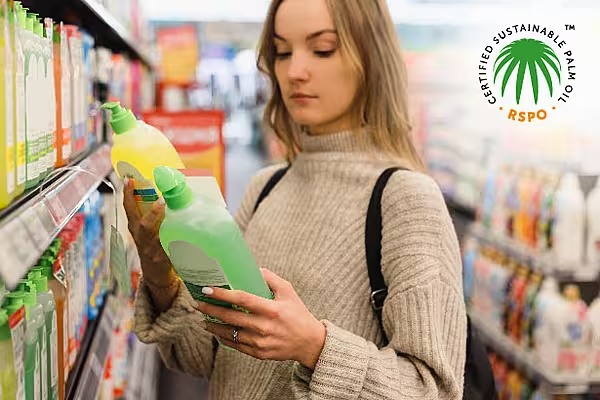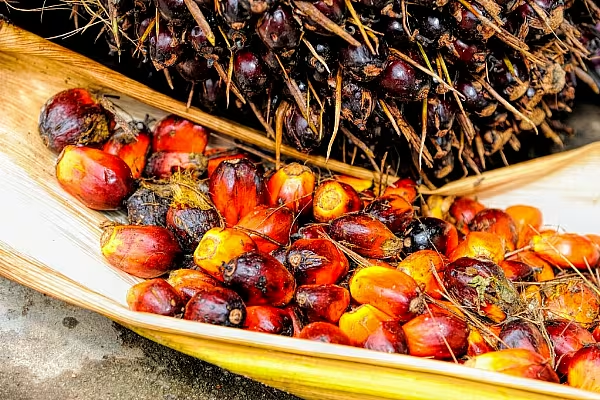The cosmetic and home sectors are responding to consumer demands for sustainable, eco-friendly products with innovative solutions that use less packaging and less water to reduce environmental impact.
As consumer awareness of environmental and social issues increases, companies are under more pressure to ensure greater transparency in supply chains, especially those from agroforestry.
It is estimated that at least 70% of all cosmetics contain palm kernel oil or palm kernel derivatives.
Shampoos, detergents, toothpaste, as well as decorative cosmetics like lipsticks and mascaras, may contain ingredients that originated from one of the two parts of the oil palm fruit.
The palm oil industry has been under great scrutiny following allegations linked to deforestation and human rights violations.
The Roundtable on Sustainable Palm Oil (RSPO) was founded in 2004 in response to the urgent and pressing call for sustainably produced palm oil.
It has developed the industry’s most stringent standards, which address consumers' environmental and social concerns.
The 2018 RSPO Principles and Criteria Standard for growers ensures that a sustainable palm oil supply chain respects biodiversity, local and indigenous communities and workers in palm oil producing countries.
A growing number of retailers and producers are committing to adopting sustainable palm oil sourcing policies.
In 2020, an estimated 90% of palm oil used in food, feed and oleochemical in Europe was RSPO certified. However, uptake of certified sustainable palm kernel oil, primarily used in cosmetics and household products, was considerably less, at 70%.
The supply chain for derivatives is complex and there is often a barrier to material segregation.
However, substantial progress has been made in the oleochemicals supply chain, leading to a wide range of home and personal care ingredients being widely available as RSPO Mass Balance (MB).
One of four RSPO supply chain models, the MB model, allows farmers to place certified sustainable fresh fruit bunches on the market, even when the facilities are unable to keep the oils (conventional vs certified sustainable) separate in mills, during storage and transportation, and when the minimum quantities necessary for the operation of the plants are not reached by certified material only.
Although the MB model does not guarantee that certified sustainable palm kernel oil is present in a final product, the MB model contributes to the positive impact that sustainable production generates for people and the planet.
With the increasing demand for sustainably sourced ingredients in cleaning and beauty products, production systems will also evolve, including a move to supply chains that can guarantee more traceability, like the Segregated model, as witnessed in the food supply chain.
To understand how your business can do its part towards a more sustainable palm oil supply chain, visit rspo.org or enquire at info.eu@rspo.org.
© 2022 European Supermarket Magazine – your source for the latest supply chain news. Sponsored post. Click subscribe to sign up to ESM: European Supermarket Magazine.














